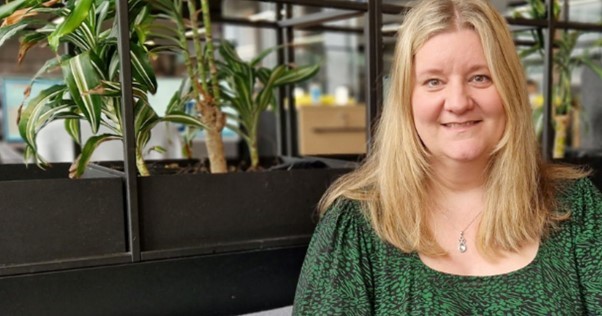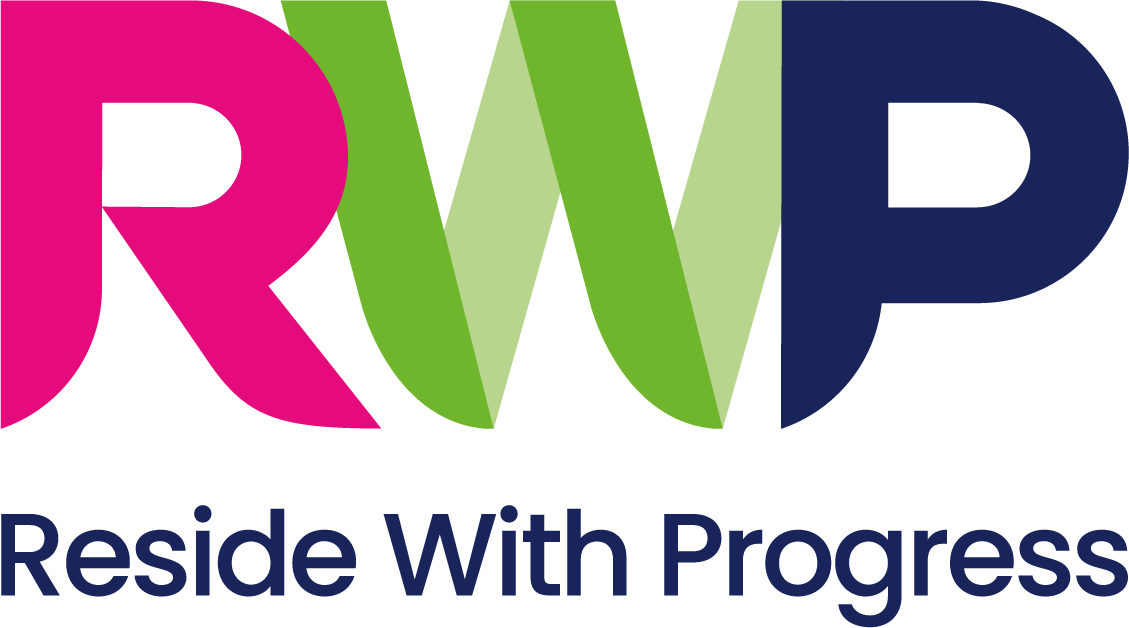
Lyndsey’s blog: supported living helps people to lead independent lives
Latest news
In her blog, RWP Housing Officer Lyndsey discusses the variety of ways that she supports tenants, including working together with support professionals and tenants’ families, and how she adapts her communication style to ensure all tenants are receiving the very best support that meets their needs.
“Supported living helps people with a learning disability to lead full, independent lives with support as and when they need it. This improves people’s quality of life by giving them greater choice and control over their living space and activities, which in turn gives them autonomy and dignity,” says Lyndsey.
Supporting tenants throughout their tenancy
“I support our tenants throughout the duration of their tenancy, from making sure they understand their tenancy agreement and up until they make the decision to move out. This will include supporting tenants to apply for housing benefit, supporting them if they have any issues like unresolved repairs, issues with anti-social behaviour, and requests for adaptations. I also inform tenants about the latest opportunities that we have in place for tenant involvement and support them if they want to become involved.
Our tenants have a wide range of abilities, so it is important to make sure we are led by them and ask what they would like support with. As we go through the tenancy sign-up process, and at our annual reviews, we check what our tenants would like additional support with. When a tenant does need support with an issue, we discuss the options with them and explain what we can. This might involve visiting them and going through a benefit application together or explaining how to report and log incidents of anti-social behaviour.
Adapting your communication style
It is extremely important to check each tenant’s preferred method of communication and try to adapt to what suits them best. Some people find it much easier to have a conversation over text message or email and others may prefer speaking face to face. Sometimes sign interpreters will be needed and we will arrange that. Some tenants might just need you to spend a little longer with them to go through things slowly. We quite often find tenants need documents with pictures or larger print. For example, I recently transcribed a tenancy agreement in a larger font and all capitals because the person told me that this was how they found documents easiest to read.
Face to face visits
RWP housing officers will carry out at least two visits a year to each property to visit tenants to check they are happy with the services we provide and see if they have any questions or other issues that we can support them with. Face-to-face visits are important because you can get a better rapport with people and allow them to share their thoughts and feelings. I enjoy talking about social activities and finding out what people have been up to and their upcoming plans. It’s nice to chat about things that interest tenants as it helps us to build up a relationship and get to know people better.
I think as we get more focussed on digital services it would be great to try and support tenants to have online meetings with us, then they can see us even more and we can further improve our visibility in areas that are sometimes quite geographically isolated.
Social activities at supported living schemes
Our supported living schemes do a great job in supporting people to be independent. It is lovely to see group social activities take place, such as chippy / Chinese takeaway nights, gardening club, garden projects, and weekly arts therapy and crafts sessions. It is just as important to make sure that people can pursue their individual interests. For example, at a property in Stockport one of our tenants enjoys singing so support staff arrange for someone to visit and spend time with her singing. At most schemes that I visit, the tenants value day-to-day activities , like help to do their weekly shop, make an evening meal or go out to the pub to meet friends.
Supporting people with a learning disability
A person with a learning disability will often have lots of people involved in their life; family, support agencies, social services, health services, occupational therapy, benefits services and then there is, us, their housing provider. It’s important to understand the different roles professionals have so that you can support the tenant and their family. At the start of a tenancy, it can be very overwhelming, as it is for anyone moving house, especially if the person has previously always lived with their family. Throughout the tenancy, we check at our visits if their needs have changed, if they are happy with our services, and if there is anything they are unsure of. Teams within the Group are on hand to signpost tenants to additional help such as Community Safety, Income Collection, Health and Wellbeing, Repairs, and Property Services.
Helping to improve accessibility
There are lots of barriers for people with a learning disability, from physical barriers such as inaccessible buildings to virtual barriers such as having limited IT skills or not having used online services before. We can support people to use online services such as applying for housing benefit online or registering for a choice-based lettings site. We can support tenants to access any physical adaptations within the property, and signpost them to occupational therapy services.
An occupational therapist will visit to assess and then provide a report to tell us what the person needs, such as handrails or specialist bath equipment, and how they should be positioned. Once we have the report, the work will be organised either through our Aids and Adaptations Team or through the local authority using a Disabled Facilities Grant (DFG). Some recent examples include bespoke ramps for wheelchair access to properties, fitting door hold-open devices which allow doors to remain open for people to pass through (but they close automatically if the fire alarm sounds), and fitting fold-down shower seats and handrails.”

